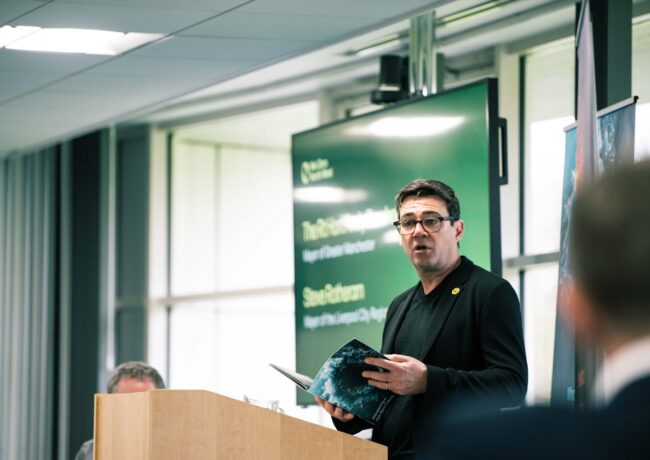MIPIM | Bernstein questions May’s commitment to devolution
The case for greater devolution lies at the heart of both the cause of the vote to leave the EU and the way ahead for Manchester in a post-Brexit world, Sir Howard Bernstein told a MIPIM session.
Bernstein asserted that the lack of ability to make decisions at local level has contributed to the social alienation that has been a large contributory factor in the rise of nationalism. He said: “The argument for devolution is key here – the centralised decision-making process is a problem because too many programmes are managed at a national level and don’t work, and this has created a platform for discontent. Along with London, we’ve made the case for greater functional as well as fiscal devolution.
“While the government talks of devolution, we’re seeing precious little evidence that it is being acted on with the urgency shown by the previous government.”
Bernstein said that it is up to cities to take charge of their own futures rather than wait for decisions from prime minister, Theresa May, or others: “We don’t need to ask permission of national governments to work together with other cities, and we need to work even more closely together in our quests for growth.
“Europe as an economic entity is declining in significance, and for cities like Manchester it’s important to develop things like the Northern Powerhouse strategy to give us a wider platform as a trading base.”
The session convened by Manchester at its pavilion, examining “Brexit – who benefits?” saw the panel in agreement that in the event of Article 50 being triggered, the best case scenario is a “soft” Brexit, coupled with a re-examination of what the EU stands for.
Eric van den Berg, deputy mayor of Amsterdam, said: “When it comes to the big issues the EU doesn’t have the answers – it has to reinvent itself, and it will. It has to go back to being economic in its focus.” He added that contact from Asian businesses, previously wedded to the UK as their choice location for European investment, has increased since the referendum.
Olof Zetterberg, chief executive of the Stockholm Business Region, said: “Nobody is gaining from the outcome of the referendum. But like Amsterdam, and others, we are pitching hard for the European Medicines Agency which will have to leave the UK.”




